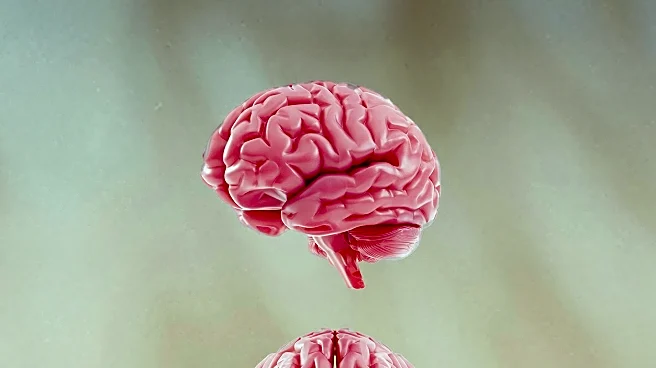What's Happening?
uniQure, a gene therapy company, has received unexpected feedback from the U.S. Food and Drug Administration (FDA) regarding its investigational gene therapy, AMT-130, for Huntington's disease. During
a pre-Biologics License Application (BLA) meeting, the FDA indicated that data from Phase I/II studies, previously considered sufficient for BLA submission, may no longer be adequate. This marks a significant shift from earlier guidance provided by the FDA. As a result, the timing for the BLA submission is now uncertain. uniQure plans to engage with the FDA to find a path forward for the accelerated approval of AMT-130. The company also intends to continue discussions with other regulatory agencies in the European Union and the United Kingdom.
Why It's Important?
The FDA's feedback introduces uncertainty into the approval process for AMT-130, a potential treatment for Huntington's disease, a condition with no current disease-modifying therapies. This development could delay the availability of a promising treatment option for patients. The decision impacts uniQure's strategic plans and could affect investor confidence and market performance. The broader gene therapy industry may also be affected, as regulatory pathways and approval processes are critical for the development and commercialization of new therapies. Stakeholders, including patients, healthcare providers, and investors, are closely watching the outcome of uniQure's interactions with the FDA.
What's Next?
uniQure is expected to receive final meeting minutes from the FDA within 30 days and will urgently seek to clarify the path forward for AMT-130's approval. The company aims to work closely with the FDA to address the concerns raised and explore alternative pathways for approval. Additionally, uniQure will continue its discussions with regulatory bodies in Europe and the UK to advance AMT-130's approval process in those regions. The outcome of these efforts will be crucial in determining the future availability of AMT-130 for patients with Huntington's disease.









